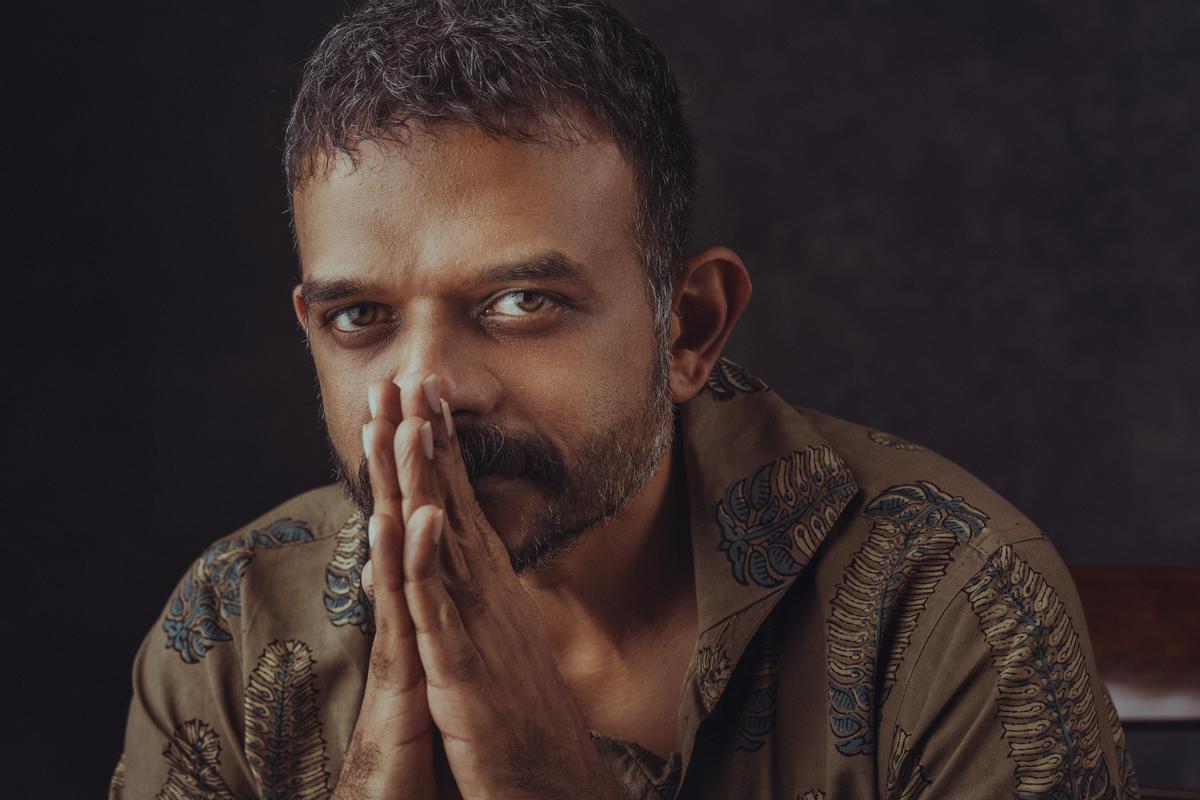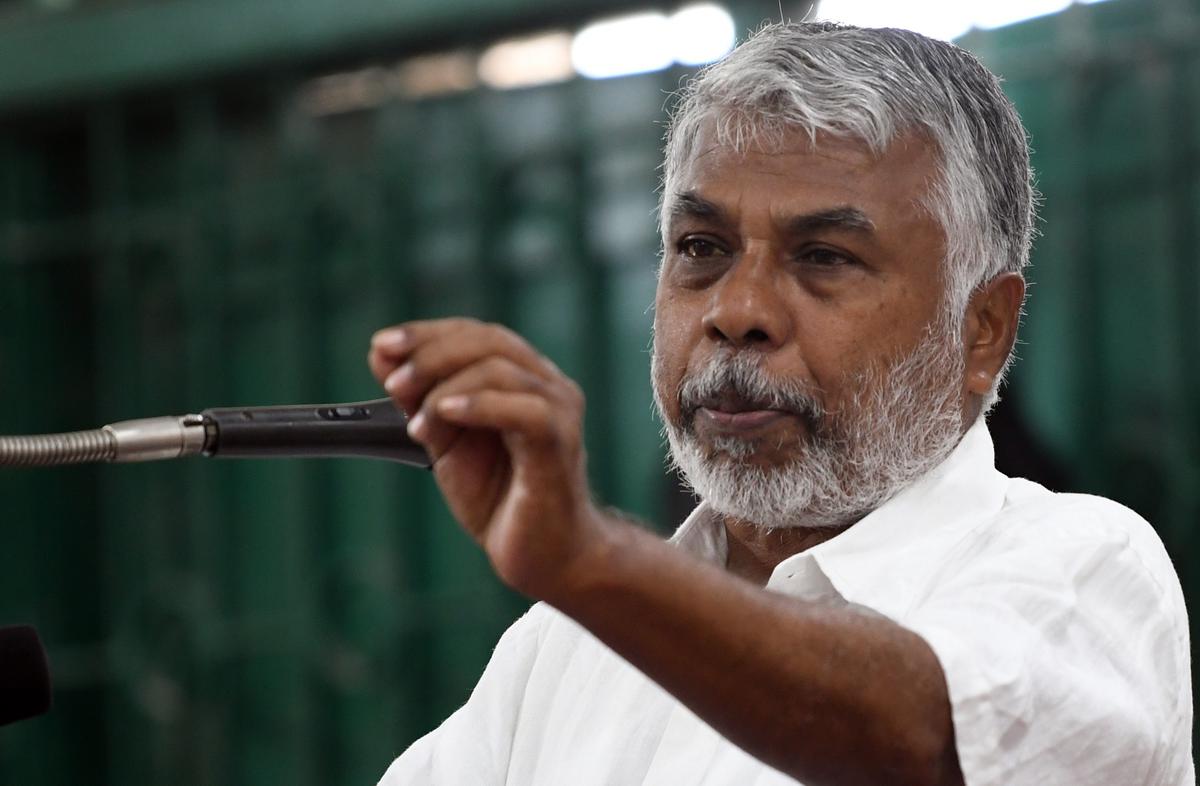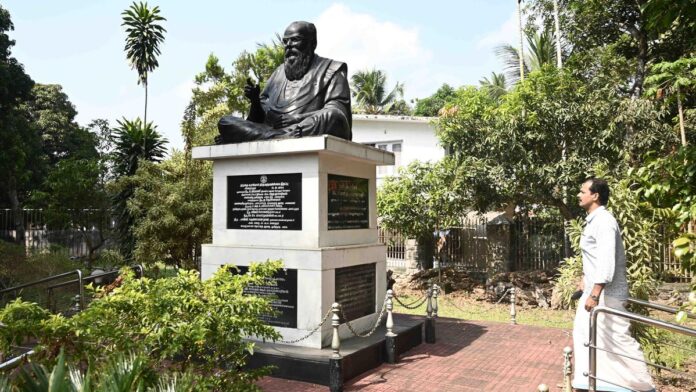
The museum in memory of EV Ramaswamy (Thanthai Periyar), who was at the forefront of the Vaikom Satyagraha and earned the epithet Vaikom Veeran.
| Photo Credit: VISHNU PRATHAP
In tune with the spirit of the Vaikom Satyagraha, which is celebrating its centenary this year, Carnatic vocalist TM Krishna released a composition, Sindikka Chonnavar Periyar, written by author Perumal Murugan in praise of Periyar. Composed in raga Bilahari and set to Eka tala, the song was posted on the musician’s YouTube channel on Thursday.
TM Krishna tweeted: “Honouring Periyar with this special song along with Perumal Murugan and Pazha. Athiyaman – Commemorating the Centenary of the Vaikom Satyagraha.”
A man walks along a road outside the Mahadeva Temple premises at Vaikom in Kottayam district on Wednesday. The struggle to earn the rights for people from all castes to walk along the roads surrounding the temple, called Vaikom Satyagraha, is celebrating its centenary in 2023.
| Photo Credit:
THULASI KAKKAT
The Vaikom Satyagraha was a non-violent protest to remove restrictions that prevented ‘backward communities’ from using the road around the Vaikom Mahadeva Temple, which was then a part of erstwhile Travancore. About 30 kilometres from Kottayam, Vaikom became a milestone in the temple entry movement in India. The Satyagraha, which began on March 30, 1924, lasted for 20 months and saw the participation of Periyar and Mahatma Gandhi in addition to several eminent leaders from Kerala and India.

TM Krishna
| Photo Credit:
DEEPA ALEXANDER
Speaking on phone from Chennai, Krishna says that the lyrics were written by Murugan more than a year ago. He had mailed it to the vocalist. “I did not work for it for a while. Suddenly, when I was doing something else, I remembered the composition. I opened my mail and the tune just came to my mind. I hummed it and it fell into place. All it required was some fine-tuning. I told Murugan that I was ready with the song. He told me that we could release it on a date that had some significance for the Vaikom Satyagraha. We got to know that the centenary was being observed on March 30 and that is how it was released on that day.”
Krishna says that much of the credit also goes to the writer for its lyrical structure. The music video begins with research scholar and author Pazha. Athiyaman’s succinct introduction to the background of the composition and its gist. The author has written an authoritative book in Tamil on the Vaikom Satyagraha. ”I understand there will soon be a Malayalam translation of the book. I urge people to read it to understand the contribution of Periyar to the Vaikom Satyagraha,” says Krishna.

Perumal Murugan
| Photo Credit:
RAGHUNATHAN SR
The rousing lyrics scored on the lines of a marching song, begin with the lines – ‘He was the one who told us to think; Our elder Periyar’. The latter part of the song exhorts listeners to question caste discrimination, blind traditions, oppressive actions, injustice and untouchability.
Erode Venkatappa Ramasamy a.k.a. Periyar or Thanthai Periyar, was then the Tamil Nadu Pradesh Congress Committee president. He travelled to Vaikom to join the peaceful protestors and courted arrest twice. Krishna points out that it is wonderful to think of people like Periyar participating in an agitation in a neighbouring state, in support of a noble cause. The lyrics remind us that Periyar was the ‘one who told us to think, Our Elder Periyar, Our Elder Periyar, To use one’s own intellect to think.’
Agreeing that Murugan’s composition is relevant even today, Krishna says that it is sad that 100 years after the Vaikom Satyagraha, there are temples where Dalits are not allowed to enter, streets where they are not permitted to enter, separate crematoriums for Dalits, eateries that have separate glasses for Dalits…”It is sad that even after 100 years, the battle is on. Yes, we have moved forward from those days but there is still work to be done. Still, cultural and emotional transformation is required in society.”
He adds: “As long we think that equality is being forced upon us by a system of democracy, equality and equity will never happen. We have to believe that equality and equity are natural and ethical ways of living. We have a long way to go in that respect.”
#Vaikom #Satyagraham #Hindu
